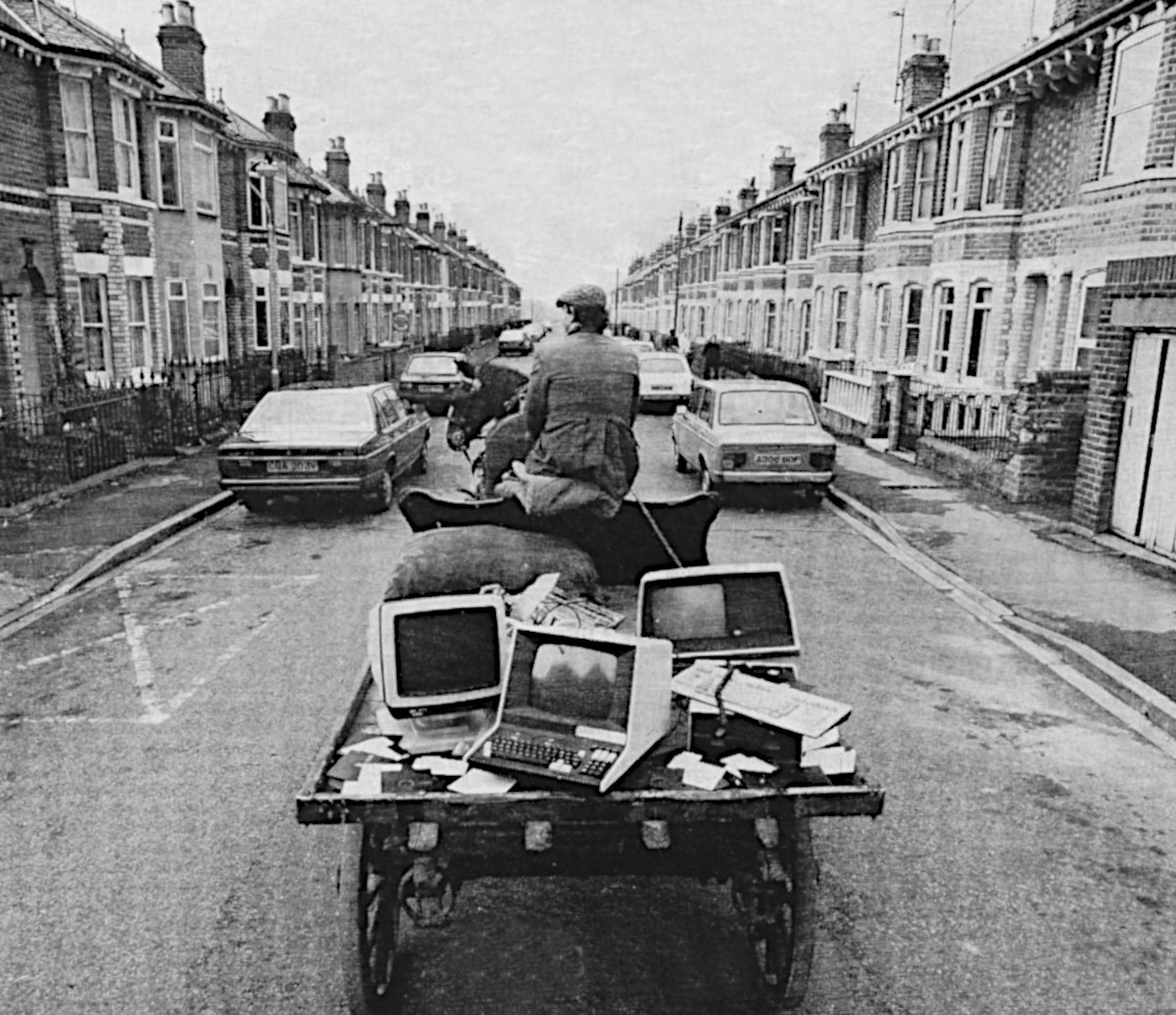
The fate of many microcomputer companies. From a Business Operating Software advert in Personal Computer World, June 1986.
In a private room at the Winter Consumer Electronics Show in Chicago in January 1977, Commodore showed the world's first complete "personal computer" - the PET 2001 - an "appliance" micro that for the first time could be taken out of the box, plugged in and used by regular people without a soldering iron.
Soon, Tandy and Apple joined in and the market grew steadily, but then Commodore and Sinclair launched cheap home computers in the early 80s that changed everything.
The market exploded from tens of thousands of machines a year to millions, as famous 1970s names like Cromemco, IMSAI, Nascom and MITS were swept away. Micro companies were suddenly worth $1 billion dollars and their employees were millionaires. Hundreds of companies launched hundreds of incompatible machines. Price wars were started, old scores were settled and companies were destroyed.
Eight bits made way for 16 and 32 in the space of a few years. For a while Britain led the world in manufacture and adoption, with 80% of all computers sold in Europe being sold in the UK.

The fate of many microcomputer companies. From a Business Operating Software advert in Personal Computer World, June 1986.
Then the 8-bit market reached saturation and more companies imploded - Sinclair was sold for its name and assets only, Acorn almost didn't make it and a raft of also-rans fell by the wayside - Camputers, Dragon Data, Elan, Oric and Jupiter Cantab to name but a few. Even big names like Timex and Texas Instruments were burned.
Meanwhile, the sleeping giant that was IBM launched its 5150 at the end of 1981 and watched as it slowly but inevitably over the next few years became the standard. Other companies cloned it, copied and improved it and soon the only game in town was the IBM PC.
From the latter half of the 1980s, every micro company and its dog was building generic beige boxes. The "wonder years" were over.
This collection of over 300 adverts attempts to tell something of that story...